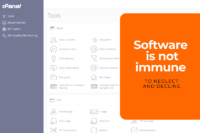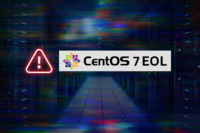What Is PostgreSQL?
PostgreSQL is an open-source relational database management system (RDBMS) that offers a wide range of features that make it suitable for various applications, ranging from simple single-user applications to large-scale enterprise systems.
As an advanced and feature-rich relational database management system (RDBMS), Postgres is a prominent player in the field of data storage, processing, retrieval, and insertion. Originally conceived as a research project in the 1980s, PostgreSQL has evolved into a robust and widely adopted solution, often mentioned in the same breath as industry giants like MySQLMySQL is an open-source relational database management system (RDBMS) that provides a reliable and efficient way to organize and access structured information using a structured query language (SQL). More.
PostgreSQL utilizes the SQL syntax, a widely accepted standard for relational databases, allowing users to leverage their familiarity with SQL for executing commands and queries. This compatibility makes the transition to PostgreSQL smoother for those already experienced with SQL-based systems, facilitating efficient data handling and analysis.
What Are the Pros of PostreSQL?
What Are the Cons of PostgreSQL?
Software Alternatives to PostgreSQL?
MySQL
MySQL is one of the most widely used open-source relational database management systems. It offers a similar feature set to PostgreSQL and is known for its speed, ease of use, and scalability.
Microsoft SQL Server
Developed by Microsoft, SQL Server is a comprehensive and feature-rich RDBMS that runs on Windows. It provides robust data management capabilities, enterprise-level scalability, and integration with Microsoft’s ecosystem of tools and technologies.
Oracle Database
Oracle Database is a powerful and highly scalable RDBMS known for its reliability and performance. It offers advanced features, such as comprehensive security, high availability options, and support for complex data processing.
MariaDBMariaDB is an open-source relational database management system (RDBMS) that aims to provide a fully compatible, community-developed, and feature-rich alternative to MySQL. More
MariaDB is an open-source fork of MySQL and offers a drop-in replacement for MySQL databases. It aims to provide enhanced performance, improved security, and compatibility with MySQL applications.
SQLite
Unlike client-server database systems, SQLite is serverless and operates directly on-disk files, making it suitable for applications that need a compact, self-contained database engine.
MongoDB
MongoDB is a NoSQL document-oriented database that provides flexible and scalable storage for unstructured or semi-structured data. It offers high performance and horizontal scalability.
IBM Db2
Db2 is a relational database management system developed by IBM. It offers enterprise-level scalability, robust security features, and complex data processing and analytics support.
Expert PostgreSQL Database Server Management By Clarkes.Team
Maintaining a Database server can be challenging, particularly for those new to server administration or those needing more technical expertise. Thankfully, at Clarkes.Team, we specialize in providing management services for PostgreSQL database servers. We help clients ensure their servers are secure, optimized for performance, and operating smoothly. Our team of experts offers the necessary knowledge and skills to ensure that our clients’ database servers run efficiently, enabling them to concentrate on their most important business goals.
At Clarkes.Team, we specialize in helping businesses monitor thier database servers and applications, managing them, and optimizing their security and performance.
At Clarkes.Team, we boast a team of highly skilled specialists in server management. With extensive knowledge and years of professionalism, we bring a solid foundation of expertise to the table. Our main objective revolves around ensuring the security and fortification of your Database server through the implementation of a comprehensive array of best practices.
One of our key aims is to assist you in configuring your server to utilize secure protocols such as SSL, thereby creating a secure and encrypted environment for your users. Working closely alongside you, we establish robust access control policies to prevent unauthorized entry and strengthen your server’s defenses.
By choosing to partner with Clarkes.Team for your Database server management requirements, you can enjoy a sense of serenity, knowing that your server is in capable hands.
PostgreSQL Related Blog Posts
Coming Soon
Other Recent Posts
Important Alert: Is Your Adobe Commerce or Magento Store at Risk?
cPanel is a popular control panel in web hosting designed to make managing your website and hosting packages easier. Whether you're overseeing email accounts, managing databases, or monitoring server performance, cPanel simplifies these tasks, making them accessible for non-technical users.
Why Regular Maintenance & Updates are Crucial for Your cPanel Server
cPanel is a popular control panel in web hosting designed to make managing your website and hosting packages easier. Whether you're overseeing email accounts, managing databases, or monitoring server performance, cPanel simplifies these tasks, making them accessible for non-technical users.
3 Reasons SSH Key is Better Than Plain Text Passwords
What is an SSH key? – Why is it better than plain text passwords? The best way to secure your business data is by preventing unauthorized access. Security is paramount when it comes to ...
CentOS 7 Is End-of-Life – Immediate Migration Advised!
This discontinuation of support and security patches for CentOS 7 can give rise to various issues that profoundly impact your business.
What is a RBL Blacklist & What You Need to Know
Have you ever wondered why some emails go directly to your SPAM box whenever you receive a new email? In this article, we will give you insight into why and how it happens. In ...







